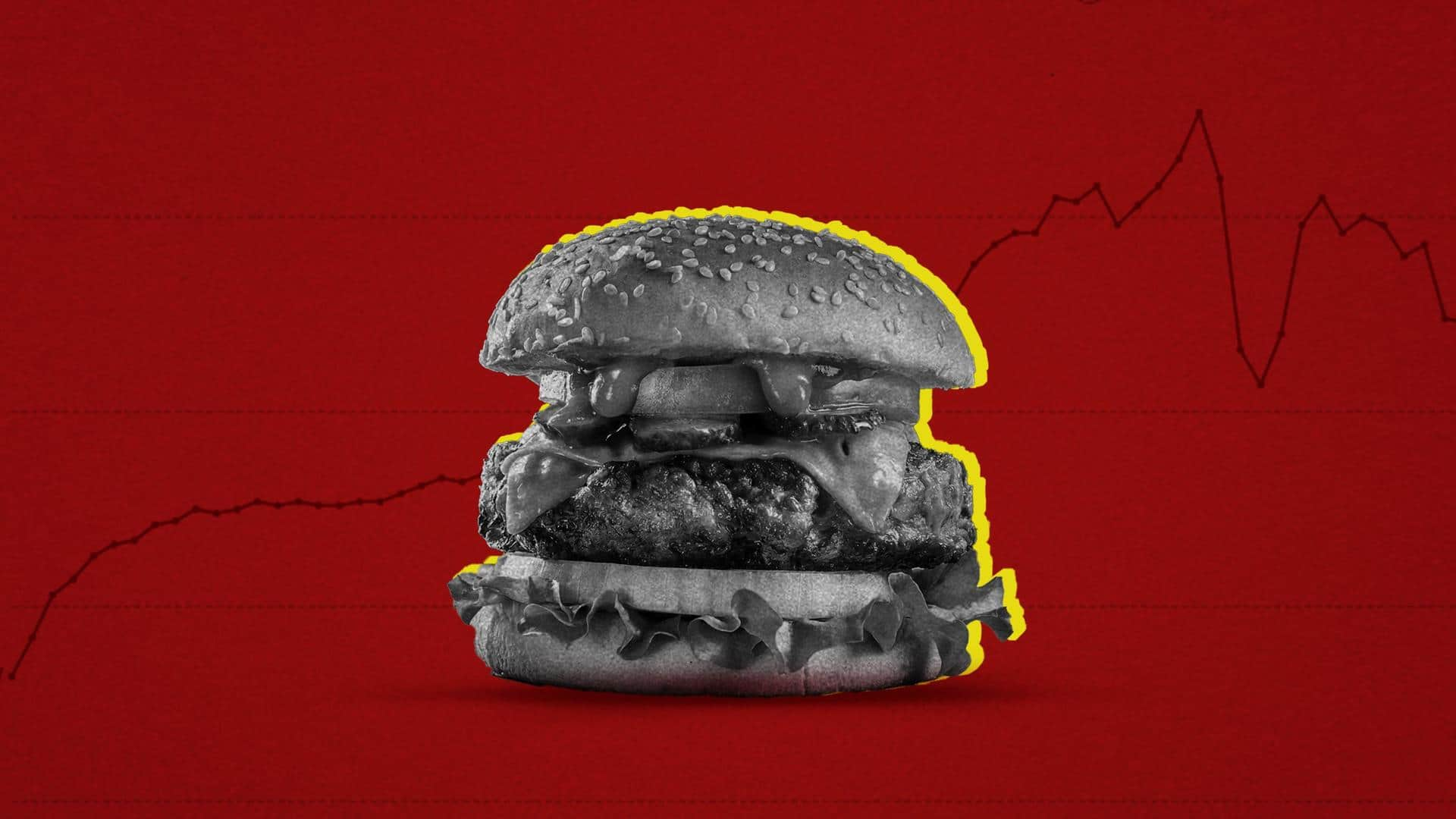
Burgernomics: What is the Big Mac Index
What's the story
Did you know a burger can tell you a lot about the economy? For instance, it can tell you how powerful the Indian Rupee is. Can't believe it? Well, there's something called The Big Mac Index, named after McDonald's king-size burger. The global presence of McDonald's is probably why its name was chosen. Here's what a Big Mac can tell you about the economy.
Big Mac Index
What is the Big Mac Index?
The Big Mac Index was created by The Economist magazine in 1986 as a lighthearted way to measure the purchasing power of currencies around the world. It is based on the theory of purchasing power parity, which suggests that the expenditure on a similar commodity (in this case, a burger) must be the same in both currencies when accounting for the exchange rate.
Application
Understanding the application of the Big Mac Index
The idea is that the price of a Big Mac should be roughly the same in every country, once you take into account exchange rates. If a Big Mac costs more in one country than in another, it suggests that the currency in the country with the more expensive Big Mac is overvalued relative to the currency in the country with the cheaper one.
Example
Let's understand it through an example
Suppose a Big Mac costs £4 in the United Kingdom (UK), and let's assume that £1 is equal to Rs. 100; then the Big Mac should cost Rs. 400 in India. However, that is not the case with Indian Big Mac. You can get it at as low as Rs. 220. This means that the Big Mac in India is 45% cheaper.
Example 2.0
Explaining the example
That means, you can get a Big Mac in India by just spending £2.2, whereas, in the UK, you can only purchase 55% of the Big Mac with that amount. In other words, even though £1 is equivalent to Rs. 100, after factoring in the purchasing power parity, the value of the British pound comes down to Rs. 55 for the burger.
Investment
What does it mean for India?
If the price of a Big Mac in India is significantly lower than in other countries, it indicates that the Rupee is undervalued and a good investment opportunity for foreign investors. However, if the price of a Big Mac in India is significantly higher than in other countries, it indicates that the Rupee is overvalued and may not be a good investment opportunity.
Prediction
Can the Big Mac index predict exchange rates?
While the Big Mac Index is not a reliable predictor of future exchange rates, it can provide some indication of what exchange rates might look like in the future. If a currency is overvalued relative to another currency, it suggests that the exchange rate between the two currencies might be expected to shift in favor of the undervalued currency.